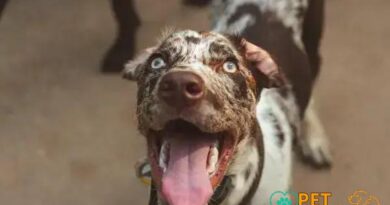What is: Yeast infection and diet adjustments
What is a Yeast Infection in Dogs?
A yeast infection in dogs, commonly caused by an overgrowth of the fungus Malassezia, can lead to various health issues. This condition often manifests in moist areas of the dog’s body, such as the ears, paws, and skin folds. Symptoms may include itching, redness, and a distinct odor. Understanding the nature of yeast infections is crucial for pet owners to ensure timely treatment and care.
Signs and Symptoms of Yeast Infections
Identifying a yeast infection in your dog can be straightforward if you know the signs. Common symptoms include excessive scratching, licking, or biting at the affected areas. You may also notice a greasy or flaky coat, along with a foul smell emanating from the skin. In severe cases, dogs may develop secondary bacterial infections, leading to further complications.
Causes of Yeast Infections in Dogs
Several factors can contribute to the development of yeast infections in dogs. A weakened immune system, allergies, hormonal imbalances, and certain medications can all play a role. Additionally, environmental factors such as humidity and poor hygiene can exacerbate the growth of yeast. Understanding these causes can help in preventing future infections.
Diet Adjustments for Yeast Infections
Diet plays a significant role in managing yeast infections in dogs. A diet low in carbohydrates and sugars can help reduce yeast growth, as yeast thrives on these nutrients. Incorporating high-quality proteins and healthy fats can support your dog’s immune system and overall health. Consulting with a veterinarian for a tailored diet plan is essential for effective management.
Foods to Avoid
When adjusting your dog’s diet to combat yeast infections, it’s crucial to avoid certain foods. Grains, sugars, and processed foods can contribute to yeast overgrowth. Common ingredients to steer clear of include corn, wheat, and soy, as they can trigger allergic reactions and worsen the condition. Focus on whole, natural foods to promote healing.
Beneficial Foods for Yeast Infections
Incorporating specific foods into your dog’s diet can aid in managing yeast infections. Foods rich in omega-3 fatty acids, such as fish oil, can help reduce inflammation and support skin health. Probiotics are also beneficial, as they promote a healthy gut flora, which can combat yeast overgrowth. Fresh vegetables and lean meats should be staples in your dog’s diet.
Supplements for Yeast Infection Management
In addition to dietary changes, certain supplements can support your dog’s recovery from yeast infections. Omega-3 fatty acids, probiotics, and digestive enzymes can enhance your dog’s immune response and overall health. Always consult with your veterinarian before introducing new supplements to ensure they are appropriate for your dog’s specific needs.
Monitoring Your Dog’s Progress
Regular monitoring is essential when managing a yeast infection through diet adjustments. Keep an eye on your dog’s symptoms and overall behavior. If you notice improvements, continue with the dietary changes. However, if symptoms persist or worsen, consult your veterinarian for further evaluation and potential treatment options.
Preventing Future Yeast Infections
Preventing yeast infections in dogs involves maintaining a balanced diet and proper hygiene. Regular grooming, bathing with appropriate shampoos, and keeping your dog’s living environment clean can significantly reduce the risk of infections. Additionally, monitoring your dog’s health and addressing any underlying issues promptly can help prevent future occurrences.
Consulting with a Veterinarian
If you suspect your dog has a yeast infection, it is vital to consult with a veterinarian. They can provide a proper diagnosis and recommend an effective treatment plan tailored to your dog’s specific needs. Early intervention can prevent complications and ensure your furry friend remains healthy and happy.




